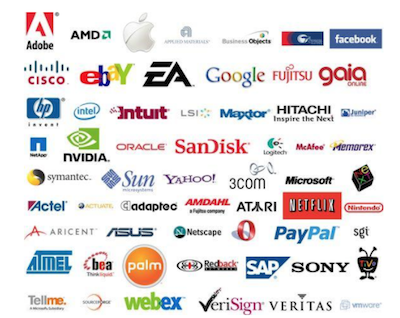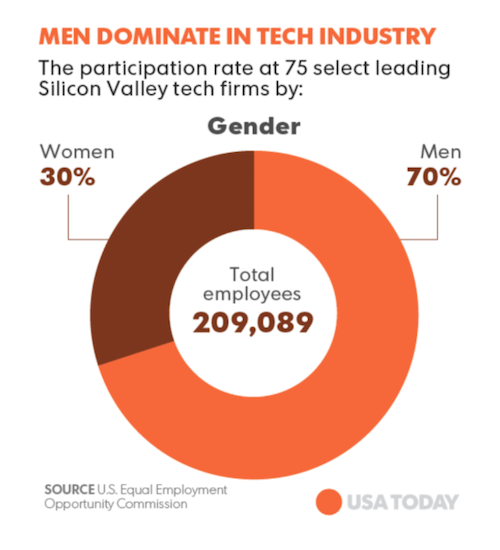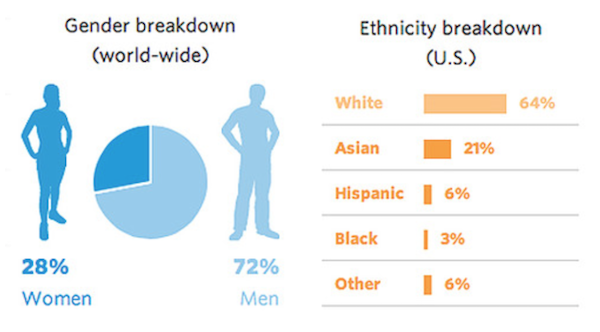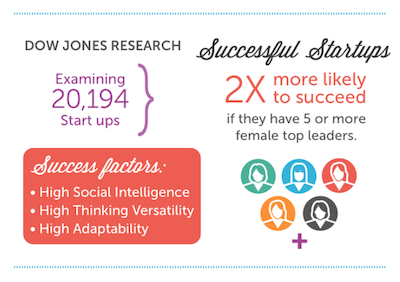
An article was printed in the New York Times by Nellie Bowles with the headline:
As Inequality Roils Tech World, A Group Wants More Say: Men. This article got my blood boiling.
For the past five years, I've been deeply immersed in women's leadership training and transforming business cultures to become more agile and competitive by empowering
ALL the organization's talent. That experience confirmed that you cannot improve an organization's strategic agility and raise employee engagement by
only focusing on women and minorities who have been disadvantaged through invisible bias. It's true that bias is a problem. But it's time to address these issues with those that lead the bias.
Bias is real.
Bias is stifling.
Bias is everywhere.

It's a well known fact that MEN DOMINATE THE TECH INDUSTRY. But recently, the tech world and men's rights communities started joining forces to create a backlash against gender equality, bias, and the women in tech movement as evidenced in this short excerpt from the NY Times article:
"What Google did was wake up sectors of society that weren't into these issues before," said Paul Elam, who runs "A Voice for Men", a men's rights group. He said his organization had seen more interest from people in Silicon Valley.
Silicon Valley has always been a men's space, others said. Warren Farrell, who lives in Marin County, California., and whose 1993 book, "The Myth of Male Power," birthed the modern men's rights movement, said, "The less safe the environment is for men, the more they will seek little pods of safety like the tech world."
This turn in the gender conversation is good news for Mr. Damore. "The emperor is naked," he said in an interview. "Since someone said it, now it's become sort of acceptable."
He added, "The whole idea that diversity improves workplace output hasn't scientifically been decided as true."
I have a lot to say about all of this. First,
to claim that there isn't settled science on the positive impact of diversity on group intelligence, value creation, innovation, and profitability is false. The only instance in which diversity does not have a measurable positive impact on work performance is in jobs that require the same process and talents in order to increase output.
A perfect example would be an 18th century cotton plantation operating with slave labor. In that case, productivity would be measured by one output, which might be bales of cotton picked per hour. Any young, strong, healthy black male doing the cotton picking might produce the most cotton bales. Obviously having women and children or any other members of a diverse workforce picking cotton would not produce more bales per hour because of the nature of the work. So, if your objective is strictly high-efficiency in producing the same output over and over again, diversity is not an advantage.
This has almost no application to our modern world and is especially untrue in technology companies where teams of talent need to work in creative collaboration to produce a stream of innovative value. The mass of research on the business benefits of diversity specifically point to increased profitable growth through innovations that customers actually value and will pay for. Anyone who challenges this research uses motivated logic, which is simply cherry picking data to support the conclusion they already insist must be true. That isn't science; it's propaganda. The entire underpinning of the scientific method is based on cognitive diversity in which new findings are peer-reviewed in order to defeat groupthink and constantly get new perspectives which lead to breakthroughs.
Handicapped by their 20th Century authoritarian cultures, most organizations promote people into leadership because they thrive in an authoritarian environment. In 1990, there were 7,000 major public companies in the United States. Today there are less than 4,000. Thousands of businesses evaporated through acquisitions because the acquiring companies have so little cultural intelligence they could not value new thinking, new methods, or even new markets.
Secondly, according to a Guardian Tech Industry Survey, more than 600 people revealed that
73% of BOTH men and women believe the tech industry is sexist. The work cultures tend to objectify women and discriminate against their advancement and career opportunities.
After working on gender synergy issues for over 10 years and seeing some headway, it seems as though we have taken a u-turn. As Bowles stated, "Those leading Silicon Valley's gender equality push said they were astonished that just as the movement was having an impact, it opened up an even more radical men's rights perspective."
"It's exhausting," said Joelle Emerson, who runs Paradigm, a company that designs diversity strategies. "It's created divides that I didn't anticipate."

People who argue that the "good ole' days" when all the leaders, engineers, and scientists were white males, represent the last gasp of a dying era. White males feel threatened because their traditional advantages and assumed superiority is finally being questioned, so they're going to fight because there is nothing more frantic than a man who is arrogant and insecure.
The typical attempts to eliminate workplace bias cause well-educated white males frustration and anger.
Gender expert Michael Kimmel accurately points out that members of a privileged class don't see themselves as privileged because they compare their opportunities to other members of the privileged class. Smart, educated men competing with other smart, educated men is plenty challenging. So, if your employer suddenly starts to give preferential treatment to women or minorities for the promotions you think you deserve, resentments are bound to fester.

But for me, all of that is
beside the point. Of course,
women are whip smart and learn anything and do anything men can. What's important now is to value the scientific fact that most women have developed neural networks. These networks give them distinct advantages in thinking versatility, which enables them to consider the merits of
Alternate Decisions and their impact without having their brains blow up,
Social Intelligence, which helps women include and engage people with different viewpoints, and above all,
Creative Collaboration, which is an advantage enabling teams to work together in ways that save time and money. Of course, not all women are good at these things, and not all men are bad at them. What's true is that these abilities are necessary to avoid catastrophic cultural meltdowns, similar to what happened at Uber recently.
The only way to reduce bias and increase gender diversity efforts is for one to personally have positive experiences with many members of the group they have bias against.
Thus, the primary reason women leaders are not held in higher esteem is that we don't have enough women leaders. Most men in leadership today haven't had enough female bosses to have an unbiased opinion. This problem will continue as long as few women are promoted to senior leadership positions
So, again, Mr. Damore, Silicon Valley, the tech world, and the men joining these anti-women in tech groups . . . women have proven they can do anything your arrogant brain can. And second, it's also true that men and women ARE generally different.
The difference that women bring is exactly the difference that organizations need—YOUR ORGANIZATION NEEDS—to thrive in our brand-new hyper-connected world.
This requires hiring women, promoting women, diversifying the culture, and unlocking the talent within that is being unwittingly marginalized by stagnating cultures. Success today requires a new way of working. It's time.
Opinions expressed by the author are not necessarily those of WITI.
Are you interested in boosting your career, personal development, networking, and giving back? If so, WITI is the place for you! Become a WITI Member and receive exclusive access to attend our WITI members-only events, webinars, online coaching circles, find mentorship opportunities (become a mentor; find a mentor), and more!
Founded in 1989, WITI (Women in Technology International) is committed to empowering innovators, inspiring future generations and building inclusive cultures, worldwide. WITI is redefining the way women and men collaborate to drive innovation and business growth and is helping corporate partners create and foster gender inclusive cultures. A leading authority of women in technology and business, WITI has been advocating and recognizing women's contributions in the industry for more than 30 years.
The organization delivers leading edge programs and platforms for individuals and companies -- designed to empower professionals, boost competitiveness and cultivate partnerships, globally. WITI’s ecosystem includes more than a million professionals, 60 networks and 300 partners, worldwide.
WITI's Mission
Empower Innovators.
Inspire Future Generations.
Build Inclusive Cultures.
As Part of That Mission WITI Is Committed to
Building Your Network.
Building Your Brand.
Advancing Your Career.

 An article was printed in the New York Times by Nellie Bowles with the headline: As Inequality Roils Tech World, A Group Wants More Say: Men. This article got my blood boiling.
An article was printed in the New York Times by Nellie Bowles with the headline: As Inequality Roils Tech World, A Group Wants More Say: Men. This article got my blood boiling. 

 But for me, all of that is beside the point. Of course, women are whip smart and learn anything and do anything men can. What's important now is to value the scientific fact that most women have developed neural networks. These networks give them distinct advantages in thinking versatility, which enables them to consider the merits of Alternate Decisions and their impact without having their brains blow up, Social Intelligence, which helps women include and engage people with different viewpoints, and above all, Creative Collaboration, which is an advantage enabling teams to work together in ways that save time and money. Of course, not all women are good at these things, and not all men are bad at them. What's true is that these abilities are necessary to avoid catastrophic cultural meltdowns, similar to what happened at Uber recently.
But for me, all of that is beside the point. Of course, women are whip smart and learn anything and do anything men can. What's important now is to value the scientific fact that most women have developed neural networks. These networks give them distinct advantages in thinking versatility, which enables them to consider the merits of Alternate Decisions and their impact without having their brains blow up, Social Intelligence, which helps women include and engage people with different viewpoints, and above all, Creative Collaboration, which is an advantage enabling teams to work together in ways that save time and money. Of course, not all women are good at these things, and not all men are bad at them. What's true is that these abilities are necessary to avoid catastrophic cultural meltdowns, similar to what happened at Uber recently.
Comments